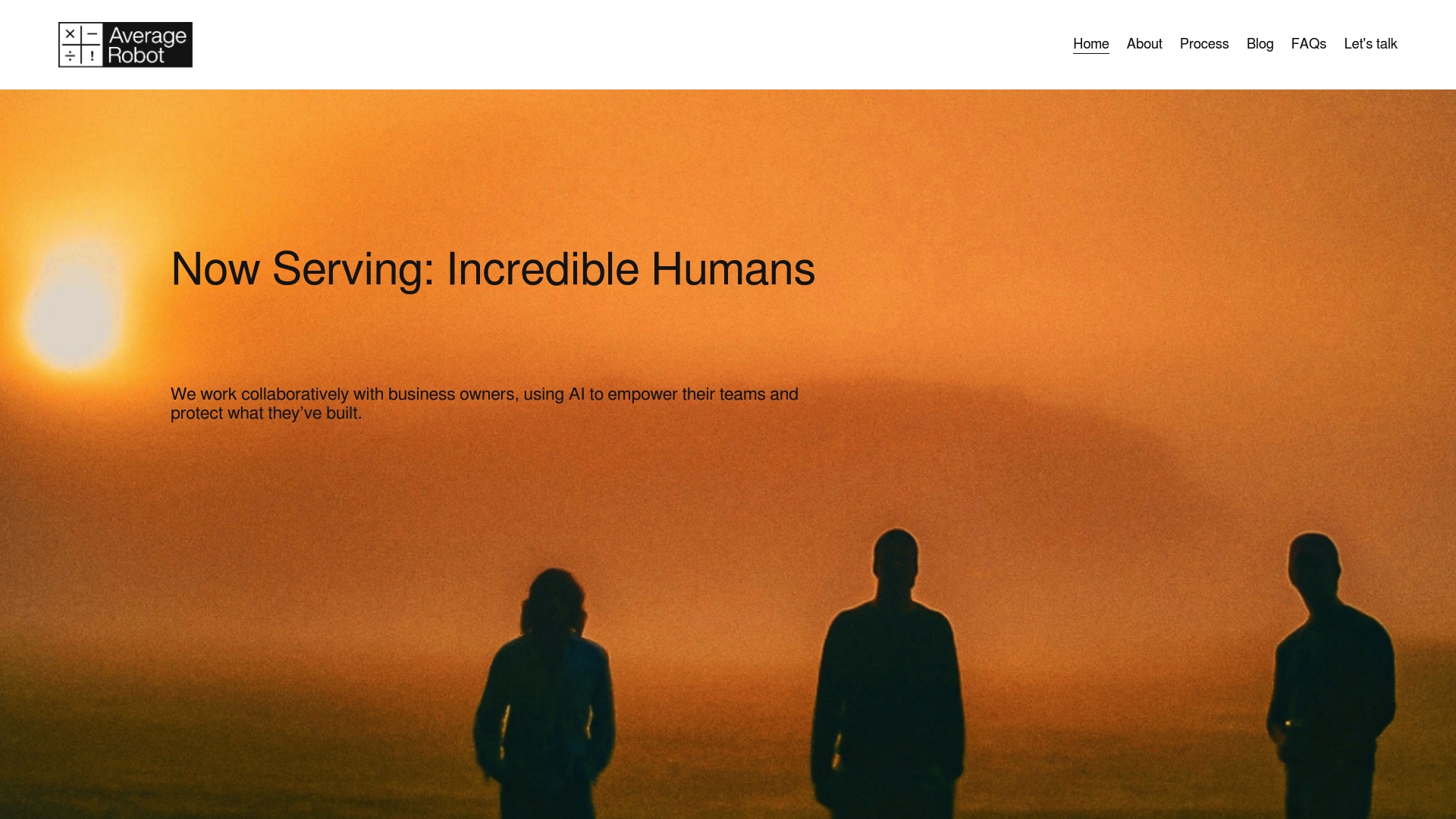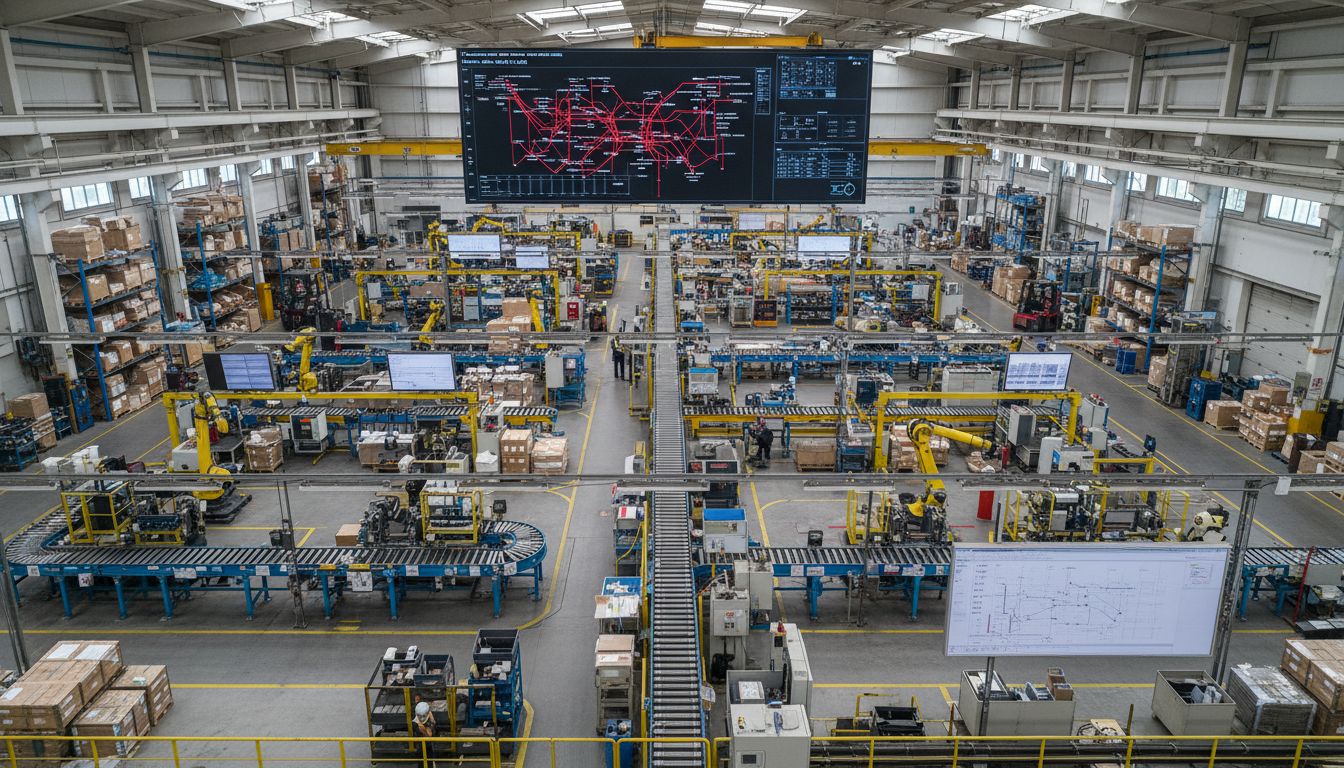7 Examples of AI Workflows for Business Success

AI workflows are showing up everywhere, transforming everything from customer support to sales strategies. Here is a wild fact: businesses using AI support tools report up to a 70 percent drop in response times and see costs shrink fast. Most people assume this means robots are taking over, but the shocking reality is that the smartest AI workflows still keep humans at the heart of every system—and that’s where things get really interesting.
Table of Contents
- Understanding AI Workflows: A Basic Overview
- Streamlining Customer Support With AI Tools
- Automating Marketing Campaigns: AI In Action
- Enhancing Data Analysis Through AI Workflows
- Improving Sales Processes Using AI Technologies
- AI Workflows For Efficient Project Management
- Monitoring And Optimizing Business Operations With AI
Quick Summary
| Takeaway | Explanation |
|---|---|
| AI Workflows Enhance Operational Efficiency | Implementing structured AI workflows transforms how organizations automate and optimize decision-making processes. |
| Human Expertise is Crucial | AI should augment human capabilities rather than replace them, ensuring effective implementation through strategic oversight. |
| Iterate for Continuous Improvement | Businesses must regularly assess AI workflows and make data-driven adjustments to keep the systems effective and relevant. |
| Integrate AI in Customer Support | AI tools improve service quality by reducing response times and enhancing customer interactions, allowing for personalized support. |
| Collaborative Approach in Marketing and Sales | Effective workflows combine AI’s analytical power with human creativity to create targeted campaigns and establish strong customer relationships. |
1: Understanding AI Workflows: A Basic Overview
AI workflows represent a strategic approach to integrating artificial intelligence into business processes, transforming how organizations leverage technology for operational efficiency. At its core, an AI workflow is a structured sequence of interconnected steps designed to automate, optimize, and enhance decision making through intelligent systems.
Businesses implementing AI workflows are not simply adopting technology they are fundamentally reimagining how work gets done. The National Academies of Sciences, Engineering, and Medicine defines AI workflow as a comprehensive process involving critical stages:
- Data Collection: Gathering relevant, high quality information
- Preprocessing: Cleaning and organizing data for analysis
- Model Building: Developing intelligent algorithms
- Evaluation: Testing and validating AI performance
- Deployment: Implementing AI solutions in real world scenarios
Successful AI workflows prioritize human expertise as the central driver of technological implementation. Business owners must understand that AI is a tool designed to augment human capabilities, not replace them. This philosophy aligns perfectly with our approach to owner led AI adoption, where strategic human oversight remains paramount.
The key is viewing AI workflows not as a one time implementation but as an evolving system requiring continuous refinement. Businesses must remain adaptable, regularly assessing workflow effectiveness and making data driven adjustments. By maintaining a flexible mindset and keeping humans firmly in control, organizations can transform AI from a complex technology into a powerful strategic asset.
2: Streamlining Customer Support with AI Tools
AI tools are revolutionizing customer support by enabling businesses to provide faster, more personalized, and more efficient service experiences. Modern customer support workflows leverage intelligent technologies to transform traditional reactive support models into proactive, intelligent interaction systems.
According to research analyzing AI integration in service companies, businesses implementing AI support tools experience significant performance improvements such as:
- Reduced Response Times: Instant automated initial interactions
- Enhanced Customer Satisfaction: 24/7 personalized support
- Operational Cost Reduction: Minimizing manual intervention
Strategic AI Support Workflows combine multiple intelligent technologies to create comprehensive customer interaction platforms. These workflows typically include chatbots, sentiment analysis tools, and intelligent routing systems that direct customer inquiries to the most appropriate support channels.
The human element remains crucial in these AI supported environments. Businesses must design workflows that augment human capabilities rather than completely replacing human support teams. Our process for empowering business AI adoption emphasizes creating systems where AI handles routine inquiries, freeing human agents to manage complex, nuanced customer interactions requiring emotional intelligence and deep problem solving skills.
Successful AI customer support workflows require continuous monitoring and refinement. Businesses should regularly analyze interaction data, assess AI performance, and make iterative improvements to ensure the system remains responsive, accurate, and aligned with evolving customer expectations. By treating AI as a collaborative tool rather than a complete replacement, companies can create support experiences that are both technologically advanced and deeply human centered.
3: Automating Marketing Campaigns: AI in Action
AI is transforming marketing campaign strategies by enabling businesses to create more targeted, personalized, and efficient communication workflows. Modern marketing automation powered by artificial intelligence moves beyond traditional batch processing to deliver intelligent, adaptive campaign management.
According to Pittsburg State University’s research on marketing automation, AI enables marketers to achieve unprecedented levels of campaign optimization through data driven insights. Key capabilities include:
- Predictive Customer Segmentation: Identifying precise audience groups
- Dynamic Content Personalization: Tailoring messaging in real time
- Performance Prediction: Forecasting campaign outcomes before launch
Successful AI marketing workflows integrate multiple intelligent technologies to create comprehensive engagement strategies. Automated systems can now analyze customer behavior, predict preferences, and generate personalized content across multiple channels with minimal human intervention.
Our guide to building real marketing value with AI emphasizes that while AI provides powerful tools, human strategic oversight remains critical. Businesses must design workflows that leverage AI capabilities while maintaining creative direction and ethical considerations.
The most effective AI marketing workflows operate as collaborative systems. They combine machine learning algorithms with human expertise, allowing teams to focus on high level strategy while AI handles granular targeting, content optimization, and performance tracking. By treating AI as an intelligent assistant rather than a complete replacement, businesses can create marketing campaigns that are both technologically sophisticated and deeply human centered.
4: Enhancing Data Analysis Through AI Workflows
AI workflows are revolutionizing data analysis by transforming complex information processing from a time consuming manual task into an intelligent, automated system. Modern businesses can now leverage advanced algorithms to extract meaningful insights from massive datasets with unprecedented speed and accuracy.
According to research published in the National Center for Biotechnology Information, AI workflows significantly improve data processing capabilities through advanced techniques such as:
- Automated Data Preprocessing: Cleaning and organizing complex datasets
- Pattern Recognition: Identifying hidden correlations and trends
- Predictive Analytics: Forecasting potential outcomes with high precision
Strategic data analysis workflows combine machine learning algorithms with human expertise to create powerful analytical systems. These intelligent systems can handle multiple data types simultaneously, from structured financial records to unstructured customer feedback, providing comprehensive insights that traditional analysis methods cannot achieve.
Learn how AI can future proof your business today by understanding that successful data analysis workflows are not about replacing human intelligence but augmenting it. Businesses must design AI systems that provide context rich insights while maintaining human oversight and strategic interpretation.
The most effective AI data analysis workflows operate as collaborative ecosystems. They leverage machine learning to process vast amounts of information quickly, allowing human analysts to focus on high level strategic decision making. By treating AI as an intelligent assistant rather than a standalone solution, organizations can transform raw data into actionable business intelligence that drives competitive advantage.
5: Improving Sales Processes Using AI Technologies
AI technologies are transforming sales processes by enabling businesses to create more intelligent, responsive, and data driven approaches to customer acquisition and revenue generation. Modern sales workflows leverage artificial intelligence to streamline complex interactions, predict customer behaviors, and optimize entire sales ecosystems.
According to the University of Houston’s Small Business Development Center, AI offers multiple powerful applications in sales processes:
- Lead Qualification: Automatically assessing potential customer value
- Personalized Outreach: Generating targeted communication strategies
- Sales Forecasting: Predicting revenue potential with high accuracy
Strategic AI sales workflows combine advanced machine learning algorithms with human expertise to create comprehensive sales intelligence systems. These intelligent platforms can analyze customer interactions, identify purchasing patterns, and provide real time recommendations that empower sales teams to make more informed decisions.
Discover AI opportunities for business leaders by understanding that successful AI sales workflows are not about replacing human relationships but enhancing them. Businesses must design systems that provide deep insights while maintaining the critical human element of trust and personal connection.
The most effective AI sales workflows operate as collaborative ecosystems. They leverage machine learning to handle repetitive tasks like data entry, lead scoring, and initial customer screening, allowing human sales professionals to focus on high value interactions that require emotional intelligence, strategic thinking, and relationship building. By treating AI as an intelligent assistant rather than a complete solution, organizations can create sales processes that are both technologically sophisticated and fundamentally human centered.
6: AI Workflows for Efficient Project Management
AI workflows are revolutionizing project management by transforming complex coordination tasks into intelligent, adaptive systems that enhance team productivity and strategic execution. Modern project management technologies leverage artificial intelligence to automate routine tasks, predict potential challenges, and optimize resource allocation.
According to North Carolina State University’s research on AI in project management, AI enables unprecedented operational efficiency through capabilities like:
- Automated Task Prioritization: Ranking activities based on project dependencies
- Real Time Status Tracking: Monitoring project progress automatically
- Predictive Risk Assessment: Identifying potential workflow bottlenecks
Strategic AI project management workflows combine machine learning algorithms with human expertise to create comprehensive monitoring and execution systems. These intelligent platforms can analyze historical project data, recommend optimal resource allocation, and provide actionable insights that traditional management approaches cannot deliver.
Explore our owner led AI adoption tips to understand that successful AI workflows are not about replacing human project managers but empowering them with advanced technological capabilities. Businesses must design systems that provide deep analytical insights while maintaining critical human judgment and creative problem solving.
The most effective AI project management workflows operate as collaborative intelligence platforms. They leverage machine learning to handle repetitive administrative tasks, generate comprehensive reports, and provide predictive analytics, allowing human project leaders to focus on strategic decision making, team motivation, and complex problem resolution. By treating AI as an intelligent assistant, organizations can create project management processes that are both technologically sophisticated and fundamentally human centered.
7: Monitoring and Optimizing Business Operations with AI
AI workflows are transforming business operations by providing unprecedented insights, predictive capabilities, and intelligent automation across organizational processes. Modern businesses can leverage artificial intelligence to create dynamic, responsive operational ecosystems that continuously adapt and optimize performance.
According to MIT’s Center for Information Systems Research, AI algorithms can dramatically enhance organizational efficiency through strategic implementations:
- Continuous Performance Monitoring: Real time tracking of key operational metrics
- Predictive Maintenance: Anticipating equipment failures before they occur
- Resource Allocation Optimization: Intelligent distribution of organizational assets
Strategic AI operational workflows combine advanced machine learning techniques with human expertise to create comprehensive business intelligence systems. These intelligent platforms can analyze complex data streams, identify subtle performance patterns, and generate actionable recommendations that traditional management approaches cannot detect.
Learn more about AI adoption strategies for business leaders by understanding that successful AI workflows are not about replacing human decision makers but empowering them with superior analytical capabilities. Businesses must design systems that provide deep operational insights while maintaining critical human judgment and strategic creativity.
The most effective AI business operation workflows operate as collaborative intelligence platforms. They leverage machine learning to handle complex data processing, generate comprehensive performance reports, and provide predictive analytics, allowing human leaders to focus on strategic innovation, cultural development, and long term organizational vision. By treating AI as an intelligent assistant rather than a complete solution, organizations can create operational processes that are both technologically sophisticated and fundamentally human centered.
Below is a comprehensive table summarizing the main AI workflow examples, their key benefits, and the central role of human expertise highlighted in the article.
| AI Workflow Application | Key Features/Benefits | Importance of Human Expertise |
|---|---|---|
| Customer Support | Reduced response times, cost savings, 24/7 personalized service, greater customer satisfaction | AI handles routine tasks, while humans manage complex issues |
| Marketing Campaign Automation | Predictive segmentation, real-time content personalization, performance forecasting | Humans provide creative strategy and ethical oversight |
| Data Analysis | Automated data preprocessing, pattern recognition, predictive analytics, faster, deeper business insights | Human analysts interpret insights for strategic decisions |
| Sales Processes | Automated lead qualification, personalized outreach, sales forecasting, improved targeting and revenue | Builds on personal relationships and complex negotiation |
| Project Management | Automated task prioritization, real-time tracking, predictive risk assessment, optimized resource use | Project leaders focus on strategy and team motivation |
| Business Operations Optimization | Real-time performance monitoring, predictive maintenance, resource allocation optimization | Executives maintain judgment and strategic vision |
| Overall Approach | Continual improvement, adaptability, and operational efficiency | Human oversight is essential for ethical, adaptable systems |
Ready to Turn AI Workflows Into Real Business Growth?
You have seen the transformative power of strategic AI workflows across customer support, marketing, data analysis, sales, and business operations. The article highlights a common struggle for mid-tier business owners: integrating AI in a way that boosts operational efficiency while keeping your team at the center. If you want to avoid costly missteps and actually see ROI without overwhelming your staff, you need a clear path and domain experts on your side.

Do not let uncertainty hold back your competitive advantage. As your partner, Average Robot delivers customized AI-driven automations and step-by-step adoption guides that empower you to lead successful change. Discover how to automate routine tasks, lift team morale, and increase your valuation today. Visit Average Robot to start a dedicated conversation about making AI a practical tool for real business results. Act now to get ahead while the opportunity window is open.
Frequently Asked Questions
What are AI workflows, and how do they benefit businesses?
AI workflows are structured sequences of steps that integrate artificial intelligence into business processes, helping organizations automate, optimize, and enhance decision-making to improve operational efficiency.
How can AI improve customer support?
AI enhances customer support by providing faster response times, 24/7 service, and personalized interactions through tools like chatbots and sentiment analysis, which allow human agents to focus on more complex customer issues.
In what ways can AI streamline marketing campaigns?
AI streamlines marketing campaigns by enabling predictive customer segmentation, dynamic content personalization, and performance prediction, allowing marketers to target audiences more effectively and optimize their campaigns in real time.
How does AI contribute to project management efficiency?
AI contributes to project management by automating task prioritization, real-time status tracking, and predictive risk assessment, which helps teams optimize resources and enhance productivity throughout the project lifecycle.
Recommended
- Owner-Led AI Adoption Tips for Small Businesses — Average Robot
- Owner-Led AI Adoption Tips for Small Businesses — Average Robot
- About | Discover Opportunities - Schedule Today — Average Robot
- About | Discover Opportunities - Schedule Today — Average Robot
- Content Creation Workflow for 2025: A Complete Guide




